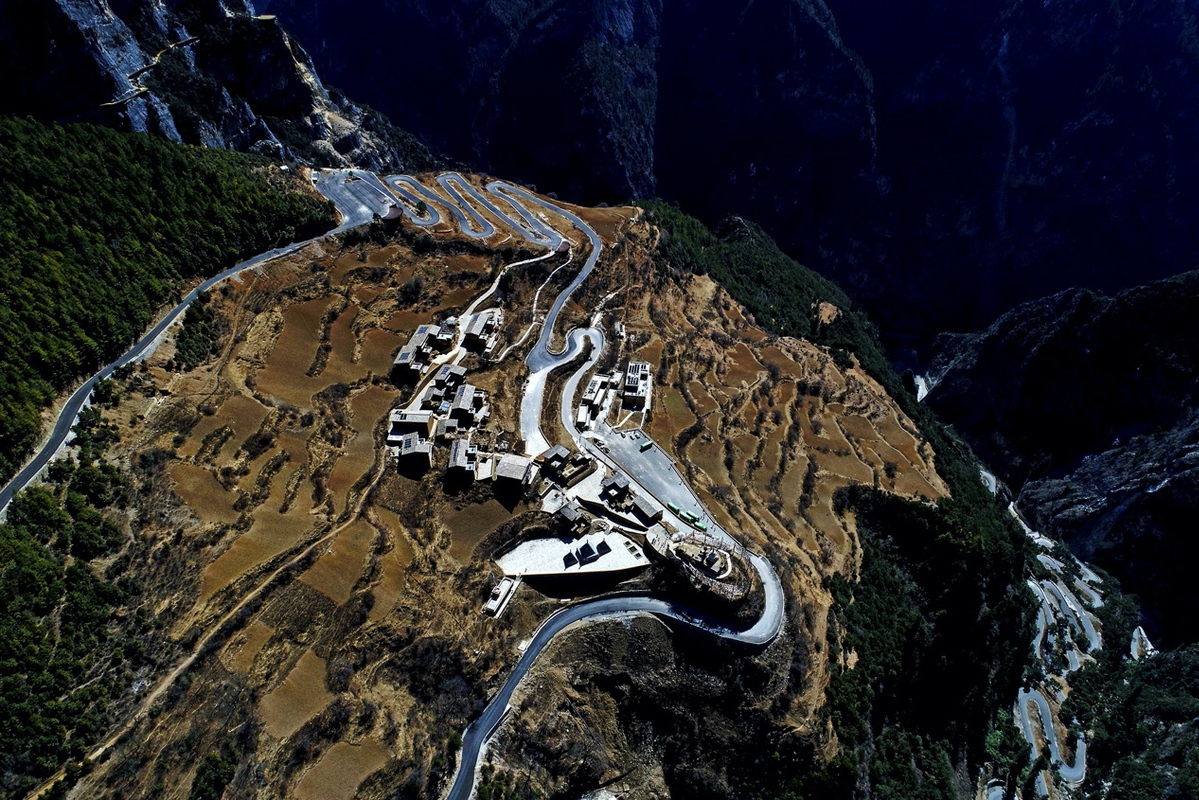
The improvement in China's transport sector played a pivotal role in facilitating the nation's eradication of absolute poverty.
"I never dreamed of selling rice to Beijing," said Yang Yonglin, a farmer from Gumiao, a remote village in Hinggan League in the Inner Mongolia autonomous region. But now, it is the harvest season for Yang and his fellow villagers, and rice from Hinggan has become a calling card.
They grow rice in an agricultural park and raise ducks and crabs on the farmland.
Thanks to a new 31-kilometer asphalt highway connecting the village and the agricultural park with the outside world, villagers can sell rice across the country, including Beijing.
A few years ago, villagers worried about transporting agricultural produce during harvest season.
"Dirt was all over our pants whether it was rainy or sunny. We relied on human labor, horses and cows to transport agricultural produce to sell in the town and the county. It was hard then," Yang said, adding that with roads now linking to the farmland, he never worries about selling rice, ducks or crabs.
Hinggan League, located deep in the Greater Hinggan Mountains, used to be a poverty-stricken area. The local transport commission invested in building multiple roads to improve transport conditions in the area, including freeways and highways. The improvement of the network, linking to remote villages and pasture areas, has brought better lives to villagers.
From 2016 to last year, Inner Mongolia invested 197 billion yuan ($30.6 billion) to build fixed transport facilities in poverty-stricken areas, about 66 percent of the region's total investment in fixed transportation, according to the transport commission of the autonomous region.
Since 2012, China has expanded and improved the country's rural road network, building and rebuilding 2.36 million km of road. By last year, China's rural road network extended to 4.35 million km, accounting for about 84 percent of the total road network. By the end of 2019, most villages and towns had access to asphalt roads, and they were covered by bus services by August last year.
Before the road network reached Metog county in the Tibet autonomous region in 2013, children from Miri village, usually accompanied by their parents, had to walk six to seven days to take a bus in Bomi county and head to schools in the city of Nyingchi, said Nyima, Party chief of the village, adding that children can now take a bus to Nyingchi on their own.
The extension of the road network has boosted local tourism development, with some villagers opening hotels and restaurants and earning more money, he said.
By 2035, the length of the rural road network will exceed 5 million km, according to a development blueprint released by the Ministry of Transport in March.
On Feb 25, President Xi Jinping announced that China had secured a complete victory in its fight against poverty. The eradication of absolute poverty was a milestone made possible after an unprecedented nationwide campaign against poverty led by Xi. In the past eight years, the final 98.99 million impoverished rural residents living under the current poverty line were all lifted out of poverty.
With the expansion of rural roads, lives will be more convenient, and people's life paths will become broader as the road gets wider.
